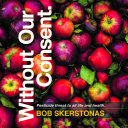Food Security, Nutrition and Sustainability Through Aquaculture Technologies
Rreth këtij libri elektronik
Food Security, Nutrition and Sustainability Through Aquaculture Technologies shines a light on how aquaculture technologies contribute to sustainability by providing a more efficient and environmentally friendly way of producing food. Compared to traditional fishing practices, aquaculture can reduce pressure on wild fish populations and minimize the negative impact of fishing on marine ecosystems. Additionally, advances in aquaculture technology have led to the development of more sustainable and efficient production systems, including recirculating aquaculture systems and integrated multi-trophic aquaculture.
As the global population continues to grow, demand for protein-rich foods like fish is increasing. Aquaculture provides a sustainable way to meet this demand, as it can produce more protein per unit of feed than traditional livestock farming. This book discusses aquaculture practiced in areas where traditional agriculture is not feasible, such as regions that are unsuitable for crop production. In addition to providing a source of protein, aquaculture can also improve nutrition. Aquaculture can be practiced in a
sustainable manner, with minimal impact on the environment. Unlike traditional fishing, which can deplete wild fish populations and damage marine ecosystems,
aquaculture allows for the controlled cultivation of fish and other aquatic organisms. Properly managed aquaculture operations can also minimize waste and pollution and caneven contribute to ecosystem restoration by providing habitat for marine species. This book includes chapters on various aspects of aquaculture technologies that address a range of important global challenges including food security, nutrition and sustainability and are likely to play an increasingly important role in meeting the world's growing demand for food.
Rreth autorit
Dr. Jitendra Sundaray is Head and Principal Scientist of Division of Fish Genetics and Biotechnology at ICAR- Central Institute of Freshwater Aquaculture, India.
Dr. Mohd Ashraf Rather is as an Assistant Professor in the Division of Fish Genetics and Biotechnology, Faculty of Fisheries, Rangil, Ganderbal, Sher-e-Kashmir University of Agricultural Sciences and Technology of Kashmir, India.
Dr. Ishtiyaq Ahmad is a Senior Researcher fellow in the Division of Fish Genetics and Biotechnology, Faculty of Fisheries, Rangil, Ganderbal, Sher-e-Kashmir University of Agricultural Sciences and Technology of Kashmir, India.
Dr. Adnan Amin is an Assistant Professor in the Division of Aquatic Environmental Management, Faculty of Fisheries, Rangil, Ganderbal, Sher-e-Kashmir University of Agricultural Sciences and Technology of Kashmir, India.





